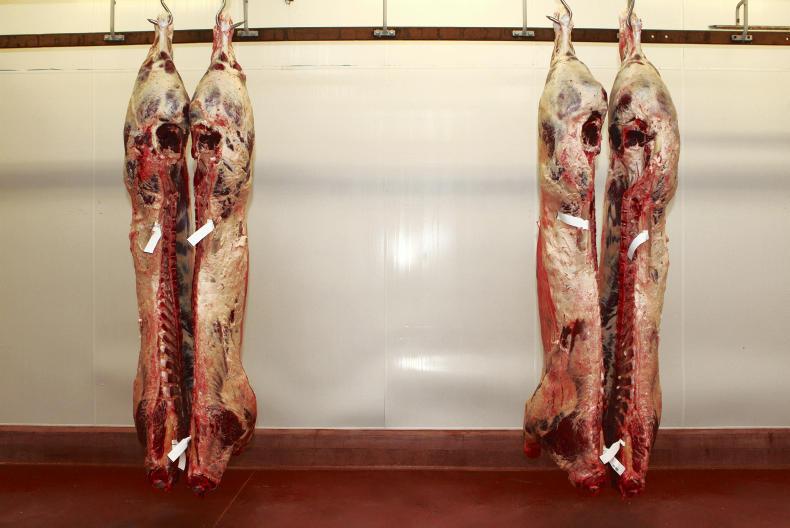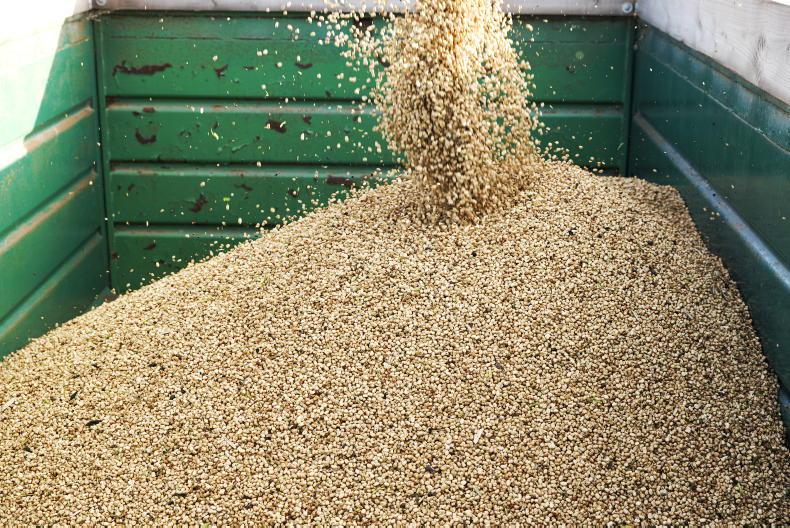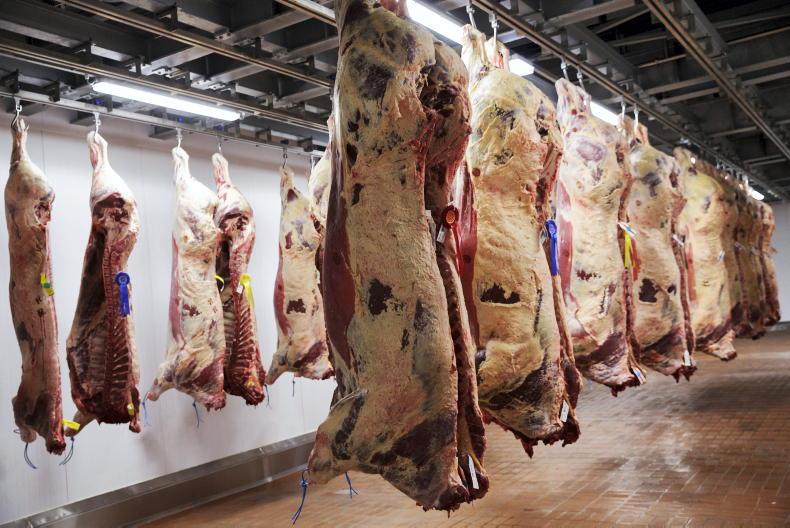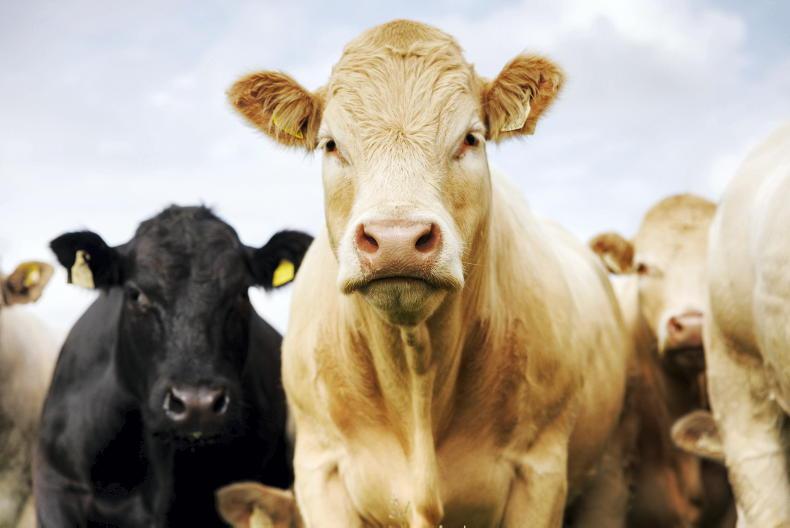The quality payment scheme (QPS) needs a complete overhaul after 10 years oF operation, ICOS says.
In a statement made the day before beef talks are set to resume, the Irish Co-operative Organisation Society (ICOS) insists that the QPS needs to be deleted or modified.
The QPS rules penalise farmers on the price they receive for cattle if they are moved more than four times between different farms or moved in the last 70 days before slaughter.
“Ten years on, the QPS is not fit for purpose. Quality parameters must scientifically based to ensure that the QPS is not simply a crude tool to effect market control by meat processors and UK multiples, as it currently appears to be the case,” ICOS said.
ICOS has cited retailer analysis which shows that many retailers are not concerned with QPS as long as meat comes from a Bord Bia-approved farm.
“It became clear that no UK retailer has a 70-day residency or more than four farm residencies combination as a requirement.
“Why then do our meat factories insist it’s a "customer requirement", and why is it persistently used as part of the current QPS bonus scheme when no such requirement exists?” ICOS asked.
“Anecdotally, the marts bodies were informed that the two major discounters, Aldi and Lidl, have no restrictions on their purchasing criteria. They did say, however, that they want all beef to be farm-assured, either through Bord Bia’s scheme in Ireland or via the Red Tractor Scheme in the UK.”
The factories also discriminate against livestock marts
They said that the conditions imposed under QPS are detrimental to Irish farmers but are of “considerable benefit” to Irish meat processors and UK multiple suppliers.
They also said that the quality standards “undermine free trade and proper price transparency” as they force farmers to forego selling through marts.
“Through their ‘conditions’, the factories also discriminate against livestock marts where they have effectively removed the trade in factory-fit animals from the marts.
“It is common practice in marts, while adhering fully to all animal transfer and traceability regulations, for an animal to be sold from farm to farm as it moves through fattening and on to slaughter.”
Feedlots
The organisation said that factories in Ireland had developed “very large feedlots” which they used to influence the price of cattle.
“These can have a throughput of tens of thousands of animals. This gives processors the capacity to increase supply at times of peak demand and to dampen market prices,” they said.
They said they were aware of legislation in the US that would put a halt to a similar practice and said the EU “would do well to follow this lead and protect livestock producers”.
Read more
Factories commit to weigh cattle pre-kill and agree to contracts with farmers
In full: the key issues discussed at the beef talks
Weekly podcast: Creed kicks back at ‘keyboard warriors’ and grid review
The quality payment scheme (QPS) needs a complete overhaul after 10 years oF operation, ICOS says.
In a statement made the day before beef talks are set to resume, the Irish Co-operative Organisation Society (ICOS) insists that the QPS needs to be deleted or modified.
The QPS rules penalise farmers on the price they receive for cattle if they are moved more than four times between different farms or moved in the last 70 days before slaughter.
“Ten years on, the QPS is not fit for purpose. Quality parameters must scientifically based to ensure that the QPS is not simply a crude tool to effect market control by meat processors and UK multiples, as it currently appears to be the case,” ICOS said.
ICOS has cited retailer analysis which shows that many retailers are not concerned with QPS as long as meat comes from a Bord Bia-approved farm.
“It became clear that no UK retailer has a 70-day residency or more than four farm residencies combination as a requirement.
“Why then do our meat factories insist it’s a "customer requirement", and why is it persistently used as part of the current QPS bonus scheme when no such requirement exists?” ICOS asked.
“Anecdotally, the marts bodies were informed that the two major discounters, Aldi and Lidl, have no restrictions on their purchasing criteria. They did say, however, that they want all beef to be farm-assured, either through Bord Bia’s scheme in Ireland or via the Red Tractor Scheme in the UK.”
The factories also discriminate against livestock marts
They said that the conditions imposed under QPS are detrimental to Irish farmers but are of “considerable benefit” to Irish meat processors and UK multiple suppliers.
They also said that the quality standards “undermine free trade and proper price transparency” as they force farmers to forego selling through marts.
“Through their ‘conditions’, the factories also discriminate against livestock marts where they have effectively removed the trade in factory-fit animals from the marts.
“It is common practice in marts, while adhering fully to all animal transfer and traceability regulations, for an animal to be sold from farm to farm as it moves through fattening and on to slaughter.”
Feedlots
The organisation said that factories in Ireland had developed “very large feedlots” which they used to influence the price of cattle.
“These can have a throughput of tens of thousands of animals. This gives processors the capacity to increase supply at times of peak demand and to dampen market prices,” they said.
They said they were aware of legislation in the US that would put a halt to a similar practice and said the EU “would do well to follow this lead and protect livestock producers”.
Read more
Factories commit to weigh cattle pre-kill and agree to contracts with farmers
In full: the key issues discussed at the beef talks
Weekly podcast: Creed kicks back at ‘keyboard warriors’ and grid review









SHARING OPTIONS